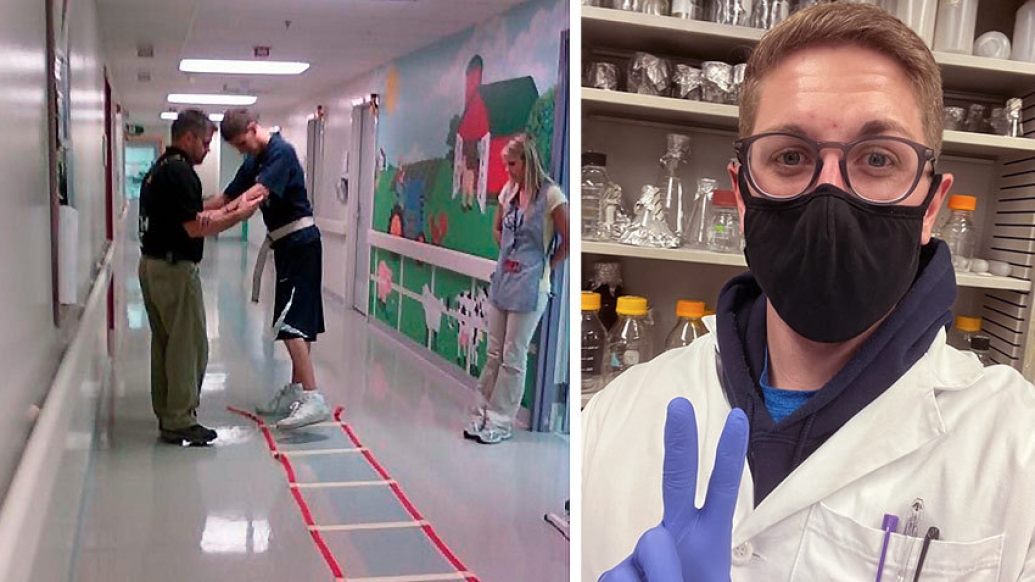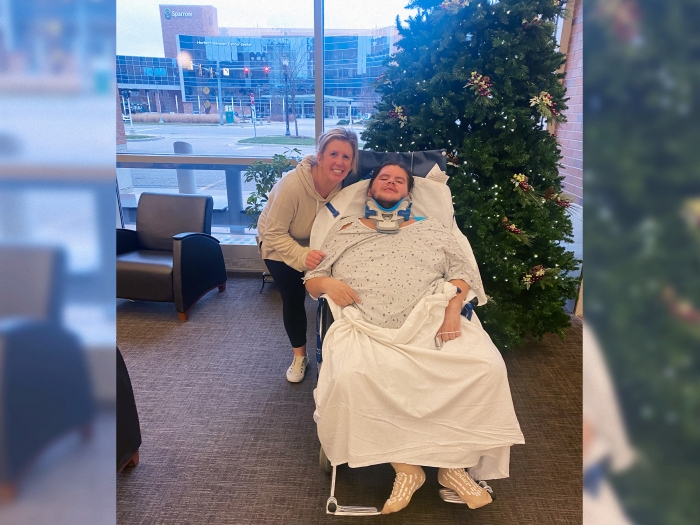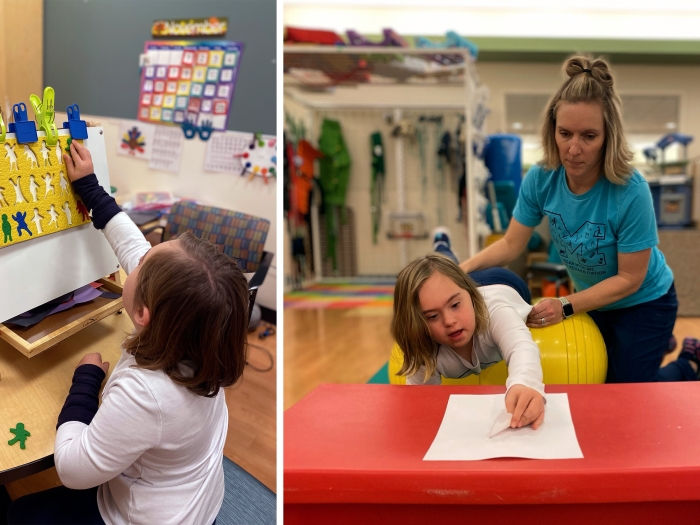Many questions remain about the most effective rehabilitative and long-term care for traumatic brain injury.
5:00 AM
Author |

For a couple weeks, it was too much to believe. A prolonged coma and zero recollection of how it happened.
Ryan Finneran was on the way to a baseball tournament in Detroit on July 1, 2010. A senior in high school, he dreamed of playing college ball. This was a chance to be recruited.
His friend drove. Ryan reclined in the passenger seat to rest. The 17-year-old was asleep when the car was T-boned – unconscious when the Jaws of Life were used to remove him from the vehicle before he was airlifted to Ann Arbor.
He woke up in a hospital bed with a traumatic brain injury.
"I was told I have a long road to recovery but that I would need to take baby steps and take it one thing at a time," said Finneran, who grew up in South Lyon, Mich. "The doctors told me this injury could not only affect me physically, such as my strength and mobility, but also cognitively and balance-wise."
Despite the crash occurring more than 10 years ago, the physician who led Finneran's rehabilitation remembers him well. More specifically, remembers him refusing to sit still at the hospital.
"He had akathisia, which is this restlessness where he would always want to be walking and never want to lay in bed," said Joseph Hornyak, M.D. Ph.D., a pediatric physiatrist at University of Michigan Health C.S. Mott Children's Hospital. "He would walk for hours and hours. Everyone around here knew him, and he just did remarkably well."
Finneran excelled through inpatient rehab and continued his recovery at home. Tasks that were once simple needed more effort and focus. His thoughts processed slowly, and it required more time and attention to regain some basic skills.
"I told myself not to give up and to work my hardest every day, and, eventually, I would start feeling like I did before the crash," he said. "After about two years of therapy, I was starting to feel like my old self."
The email
In 2020, almost a decade after the crash, Hornyak received a save-the-date for Finneran's wedding – a token of appreciation for the life-improving care he provided. But several months later, the physiatrist received an email. Not from Ryan, but someone else who spent time in his room at Mott.
"Hello Dr. Hornyak, I hope you are doing well," the email read. "My name is Matthew Finneran, and you may not realize it, but you have been a crucial role model for me and really shaped me into the person I am today."
SEE ALSO: The U.S. is failing to care for traumatic brain injury survivors, national experts say
Matthew, Ryan's younger brother, described how Ryan's care opened his eyes to the limited therapeutics available for brain injuries, especially in the central nervous system, which consists of the brain and spinal cord. While the now-25-year-old's interest always aligned with the sciences, his career path became clearer after meeting Hornyak in 2010.
"I was a freshman in high school when this happened, and my ultimate goal became trying to help people that were in my brother's position," Matthew Finneran said. "I wanted to try and find treatment or care that he wasn't able to get, even though he, luckily, still made it through after we were told his chances were low."
Matthew went on to attend Central Michigan University with a double major in neuroscience and chemistry. He then received a master's degree in chemistry and biochemistry from the University of Oklahoma, where he focused on therapeutic drug development.
Full circle moment
The email Hornyak received on April 27, 2021, didn't come from a lab in Oklahoma. Matthew wrote it from the Biomedical Science Research Building in Ann Arbor, a few miles from the physician's office.
"It has a view to the hospital where my brother was treated under your care 11 years ago," Matthew Finneran wrote. "I have just finished up my first year in the neuroscience graduate Ph.D. program at U-M. I just wanted to reach out to update you on the profound impact you have had on me throughout my development as a scientist."
The two met up in June. Matthew even asked Hornyak to consider joining his Ph.D. committee. When many aspects of the job seem bleak during the pandemic, Hornyak says, that conversation showed it's all worthwhile.
SEE ALSO: Understanding Quality of Life for Caregivers of Persons with Traumatic Brain Injury
"Some of the things we do are just day-to-day work, it's our job," he said. "Even people who are jumping out of airplanes every day may start to find it becoming boring, but getting something like this just puts it back in perspective."
After the crash, Matthew and his family also started a nonprofit called Finn Foundation Inc., which supports traumatic brain injury survivors through donations, as well as education and awareness campaigns.
Reflecting on his brother's career path – sparked by the worst circumstance – Ryan finds it remarkable.
"I honestly feel blessed that even though I had an unfortunate experience, it was able to motivate and inspire my brother to do something he loves and truly make a difference," Ryan said. "That non-profit has continued to grow and has awarded scholarships at the local high school and has helped multiple TBI survivors. He has been so supportive of me throughout my recovery process, and I support him 100% with everything he does in the research community."
Working under Roman Giger in a U-M Medical School lab, Matthew focuses on the molecular and cellular mechanisms that regulate regeneration in the central nervous system. The team is investigating interventions that would promote regeneration after the central nervous system is damaged due to injury or illness. In the work, Matthew sees his brother – and is only more motivated.
"It's almost woven itself into every facet of my life," Matthew said. "I think about it every day, and the passion is there every day I walk in to do research. I've taken this story and run with it. I'm really trying to help the broader community."
Like Podcasts? Add the Michigan Medicine News Break on iTunes, Google Podcasts or anywhere you listen to podcasts.

Explore a variety of healthcare news & stories by visiting the Health Lab home page for more articles.

Department of Communication at Michigan Medicine
Want top health & research news weekly? Sign up for Health Lab’s newsletters today!





